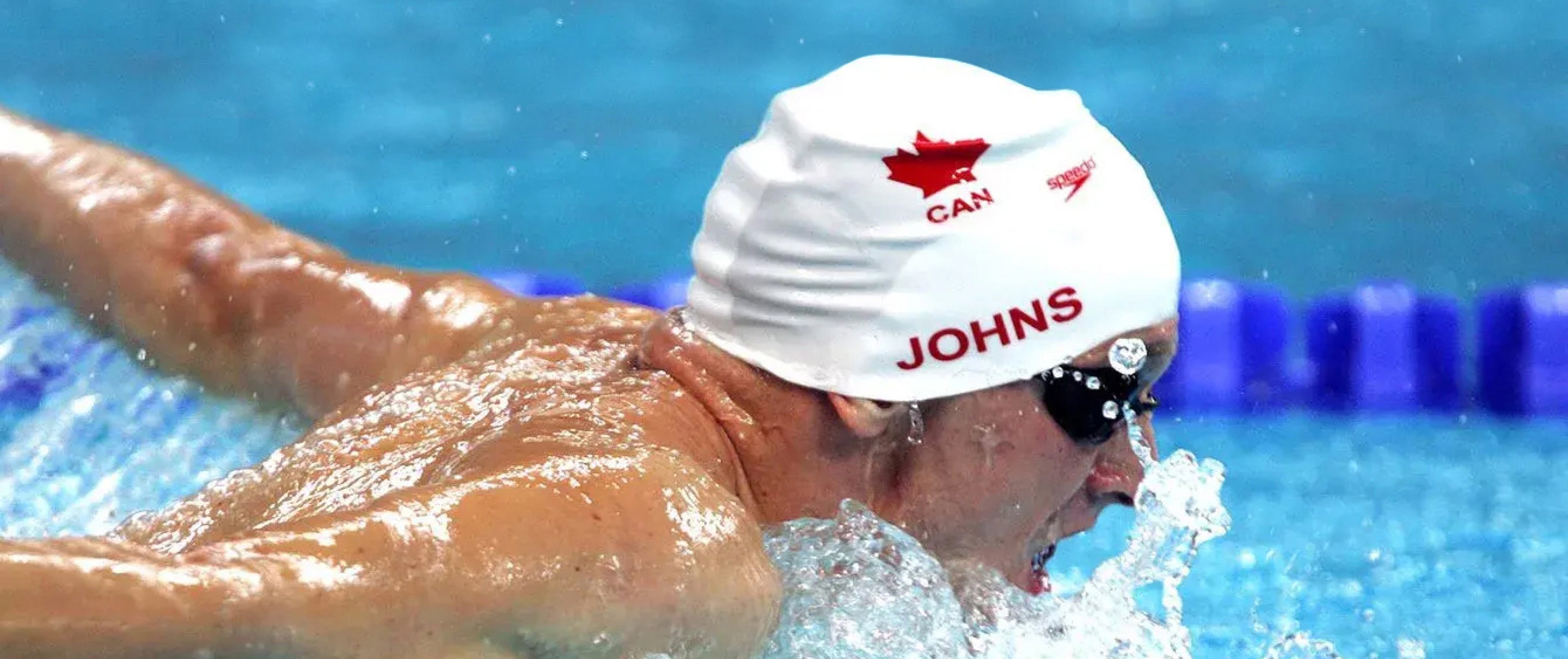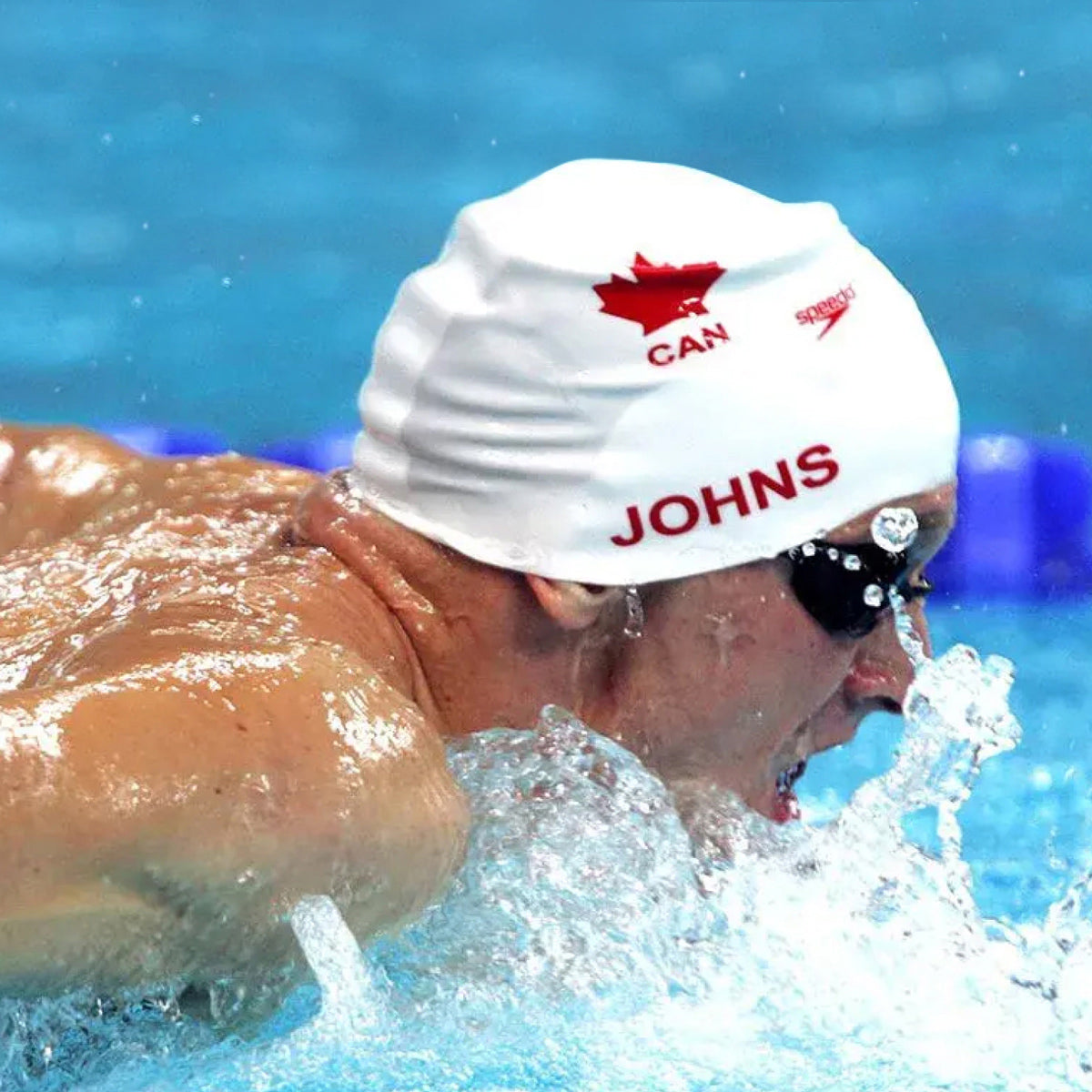Day in the life of an Olympic swimmer - with Brian Johns
Brian Johns is our Head of Coaching Science here at FORM. He’s spent his life swimming, and amongst many other things here at FORM, Brian is the brains behind our innovative HeadCoach features. Brian has competed in the biggest swim competitions in the world, culminating in him swimming at not just one, but three Olympic Games for Team Canada.
Brian swam in the 2000 Sydney Olympics, in Athens in 2004, and swam at his last Olympic Games in Beijing in 2008. In the following blog post, Brian details what it’s like to go to an Olympics, and shares what his typical ‘day in the life’ was like when he was competing.
Setting the scene
Before we get into Brian’s Olympic day-to-day routine, we wanted to take a look at the swimming events and schedule of competition overall.
Typically swimming events take place over the first 8 days of Olympic competition (which will change for the 2028 Olympics). The event order has been relatively stable for a few Olympics, with the exception of adding the Mixed Relays for 2020.
Traditionally, Heats are swum in the morning and Finals are in the evening. In 2008 (and I think for 2020), they switched so that Heats were in the evening and the Finals were the following morning so that the Finals could be shown during PrimeTime viewing hours in the US.
In the coming Paris Olympic Games, Heats will be in the morning, with Finals being in the afternoon.
A Day in the Life
The following outline shares what Brian went through on a typical day of competition, as an athlete who swims the Heats, and then has to prepare for the Finals the same day, in the evening.
08:00 - Morning Routine
On a competition day, I’d typically wake up 3 hours before my race. In Paris, heats start at 11 am, so I would probably wake up around 8 am to get a jump start on the day.
I’d grab a shower, get dressed, and have a simple breakfast. Typically I’d opt for something like a peanut butter and jelly bagel and some fruit. I wouldn’t have anything too crazy or out of the ordinary, just to keep things calm.
At breakfast I would review my timeline for the day that I would write in pencil, to give me structure and a plan for approaching the day, ensuring that it could be modified in case something unforeseen came up.
11:00 - Morning Heats
In the lead-up to competition, understanding the bus schedule to the venue became a crucial part of my routine. It’s a simple thing, but it was very important to me to figure out early.
Typically, the aquatic center is close to the Olympic Village, ensuring a manageable 15-20 minute bus ride. Timing my arrival precisely was key for me, often aiming to be at the venue 75-90 minutes before my race.
Once at the pool, I connected with my coach and support staff at 'The Pit', where massage therapists and physiotherapists are stationed near the warm-down pool.
Approximately 75 minutes before racing, I began my warm-up on deck, ensuring I finished around 30 minutes before my race start. After warming up, I changed into my racing suit and had a final chat with my coach before heading to the Ready Room. This area can be tense, filled with competitors preparing mentally and physically. I used music and light activation exercises to focus and get in the zone.
Post-race, swimmers pass through the 'mixed zone' for media interviews before heading to the warm-down pool. Afterward, I’d check in with my coach again and complete my warm-down routine.
I’d then catch the earliest bus available to get back to the Village, aiming to rest and prepare for upcoming Finals sessions. This routine ensured I was mentally and physically ready for each competition, supported by a structured timeline from transportation to warm-up and post-race recovery.
13:00 - What’s for Lunch
Between events, my routine revolved around replenishing energy and maintaining hydration.
Upon returning to the Olympic Village from my Morning Heat I’d visit the cafeteria for a meal, typically a sandwich with fruits and vegetables. I’d emphasize staying hydrated due to the warm Olympic conditions and the additional stress of competition.
Despite the lack of air conditioning in the Village, it's crucial for maintaining good health throughout the games. Following lunch, I return to my room for a period of rest, which may include a nap lasting 1-2 hours or simply relaxing and reading. This downtime is essential to recharge before the Finals session.
Having a structured routine in place helped mitigate the stress of competition, ensuring I'm mentally and physically prepared as best I could for each event.
16:00 - Ready for Finals
My Finals routine was typically similar to my Heats routine, I just ensured that I was careful of any changes in the schedule that might make things different for these sessions.
If I’d napped, I would make sure to be out of bed and awake at least 2 hours before my race so that my body is fully awake and moving to be prepared to race. I typically would have a light snack like a granola bar or fruit, but hydration becomes the most important thing as the weather was hotter and the pressure is higher when racing Finals.
There is more notoriety heading into Finals, so usually that means more people are going to the pool to watch which could mean more traffic on the way to the pool. Prior to this day, I would have a sense of what the bus schedule would be like so that I could effectively plan and follow through on the schedule I’d mapped out.
Arriving at the pool, for me, it was then about staying in my usual routine despite the extra pressure and excitement of the Finals race. Visiting my coach, warming up, getting changed all stay the same as the morning swim and confidence is built by having a strong routine.
Once the race is done, there are often more media commitments that come with a Finals race. This might mean being interviewed by multiple journalists and broadcasters at the pool or being taken off-site to be interviewed in a studio setting. Oftentimes I had to compete again later in the week, so keeping good nutrition and hydration while being run around was very important.
Back in the Village, I would have a proper dinner right away at the cafeteria before heading back to my room, calming down with some TV or reading before getting ready for the next day.
23:00 - Bedtime Routine
I found my bedtime during the Olympics is structured around ensuring adequate rest before competitions.
Depending on the timing of my events, I aimed for a consistent 9-10 hours of sleep each night. For instance, if I anticipated an early morning, I planned to be in bed around 11 pm after finishing a night session that typically ends between 9-10 pm. This routine allowed me to wake up refreshed and ready by 8 am.
Preparation for the next day involves ensuring all competition gear is ready and mentally preparing for the upcoming events, maintaining focus amidst the excitement and pressure of the Olympic environment.
Additional Questions
What were athlete accommodations like?
Athletes stay at the Olympic Village where you experience a bustling neighbourhood environment accommodating over 10,000 athletes, complete with a massive cafeteria and various stores. Security is stringent, akin to airport protocols, requiring accreditation for entry.
Accommodations vary, ranging from small apartments to townhouses designed for post-games use by the host nation. In past games like Sydney and Beijing, athletes from Canada were housed in 3-4 bedroom homes or apartment complexes, with several athletes per room.
Each country's team typically occupies a dedicated section within the village, with sports groups often sharing living spaces based on available accommodations. Roommates are typically fellow athletes from the same country and sport, assigned by the coaching staff. Additionally, some athletes, like Open Water swimmers, may stay off-site closer to their competition venue in rented homes or hotels.
What is the opening ceremony like? Did you go?
Due to the timing of my events, which often fell on the first day of competition, I did not attend the Opening Ceremonies at the Olympics. In Athens, for example, I was the very first Canadian athlete to compete at the meet, making it difficult to participate in the ceremonies.
Instead, athletes in similar situations typically gathered in the village for a celebratory event, watching the Opening Ceremonies on TV. On one occasion, we even had a former Olympic medalist, Curtis Myden, serve as our "flag bearer" for a ceremonial march around our village block. Following these celebrations, we prioritized rest as we all had early competitions the next day. This alternative allowed us to maintain focus and readiness for our respective events while still enjoying the Olympic spirit within the village environment.
Did you go to the Closing Ceremonies of the Olympics?
Yes, I attended the Closing Ceremonies of the Olympics, which I consider to be a significant but often underrated part of the games from an athlete's viewpoint.
It's a large-scale party and celebration where athletes from different nations come together to mark the end of the games. Each Olympics had its own unique atmosphere, but they all provided opportunities to mingle with friends from our team, fellow athletes from our country, and competitors from around the world.
Reflecting on these experiences, I believe the essence of the “Olympic Spirit” lies in the diversity and camaraderie shared during these Closing Ceremonies, uniting everyone in a celebratory and inclusive atmosphere.

What personally was your favorite Olympic Games and why?
For me, Beijing was my favorite Olympic Games. It holds a special place because it's where I delivered my best performances.
The journey to Beijing wasn't without challenges—I faced injuries between 2004 and 2008, which tested my resilience and determination. Overcoming those obstacles and achieving my best results in Beijing made the experience incredibly rewarding.
It wasn't just about the performances though; it was about the personal growth and maturity I gained from navigating adversity. Beijing symbolizes a pivotal moment in my athletic career where hard work, perseverance, and resilience culminated in success, making it a standout and cherished Olympic experience for me!












